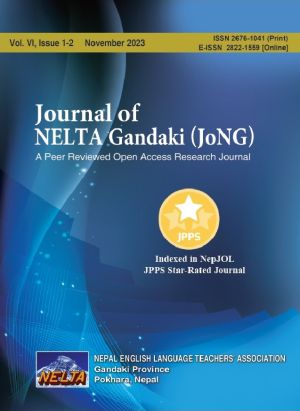Participatory Action Research in Social Sciences and Education
DOI:
https://doi.org/10.3126/jong.v6i1-2.59713Keywords:
Participatory action research, research design, cyclical process, emancipatoryAbstract
Participatory action research, as other qualitative methods. like phenomenology, ethnography, narrative inquiry, autoethnography, and case studies, has emerged as a distinct field of study and established itself as a research design in the field of social sciences and education. This methodological conceptual paper presents a review of participatory action research papers highlighting their meaning, purpose and use in research along with their definitions, the process of conducting research through participatory action research as a methodology, its guiding principles, strengths, weaknesses and challenges, applications, misconceptions and analysis of previous studies through participatory action research in various disciplines and contexts. This paper also highlights how participatory action research elevates the marginalized communities involved in the research process, solves their workplace problems and transforms their identities throughout the research by reviewing a few sample studies through participatory action research. The findings show that participatory action research has been immensely used in the social sciences and educational research for creating new knowledge as well as improving the existing situation. This paper might provide some significant insights into understanding and employing participatory action research to the teachers, teacher educators, and researchers who opt for using research as part of their academic degrees.
Downloads
Downloads
Published
How to Cite
Issue
Section
License
Copyright (c) 2023 Nepal English Language Teachers' Association Gandaki Province

This work is licensed under a Creative Commons Attribution-NonCommercial 4.0 International License.
This license allows reusers to distribute, remix, adapt, and build upon the material in any medium or format for noncommercial purposes only, and only so long as attribution is given to the creator.




